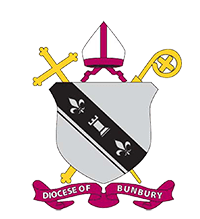St Thomas Aquinas once wrote:
‘The only-begotten Son of God… assumed our nature, so that he, made man, might make men gods’
This statement, so central to our faith, is quoted by the Catechism of the Catholic Church when explaining why Jesus Christ came among us [Catechism 460]. St Thomas is expressing the teachings of the New Testament. In the Gospel of Christmas morning, for example, we hear [John 1:12]:
But to those who did accept him he gave power to become children of God.
The Letter of James tells us that Jesus gave us a new birth, and that we are ‘first fruits’ of his new creation [James 1:18]. In Peter we read that, by God’s power, we ‘share the divine nature’ [2 Peter 1:4].
The decline in religious practice
We are all aware of the current decline in religious practice. The Church now realises that one contributing factor has been that all too often people have learned the moral obligation dimension of the Gospel without sufficient emphasis being given first to the empowerment dimension.
This is contrary to how Jesus went about teaching his Gospel. It is one reason why the Catechism now is so insistent that moral catechesis be a ‘catechesis for the “newness of life” in him’ [Catechism 1697].
How many have given up religious practice because of one or more moral demands of Catholic faith. We think of the many areas of life where so many today find living as Christ taught too difficult. Without sufficient faith in the empowerment foundation of Christ’s teachings, the moral demands can seem impossible dreams.
Jesus himself criticised the Pharisees for focussing solely upon moral obligations [Matthew 23:4]:
They tie up heavy burdens and lay them on people’s shoulders, but will they lift a finger to move them? Not they!
We lay ourselves open to the same change today if we present moral laws outside the context the Catechism outlines.
Our loved ones in moral difficulties
If our loved ones have given up their religious practice because of moral demands of the Christian message, we need to ask ourselves: ‘Do they appreciate that the Christ-child came to help them live the message of his Gospel’ ‘Have they found some moral teaching too difficult to live because they are trying to live it without Christ?’
If the answer to either of these questions is ‘yes’, there are two things we can do when opportunities arise.
First, we could try to correct the imbalance in their understanding of the Christian moral life. We could help them to see that Christ seeks to empower baptised followers to live his moral teachings. Baptised people share ‘in God’s own nature’. They are members of the Body of Christ. Christ seeks to make us ‘capable’ of living every aspect of his Gospel as we worship through the sacraments, and particularly as we pray [Catechism 1691-1692].
Second, we could remind them that anyone finding a moral teaching a ‘heavy burden on their shoulders’ can turn to Christ personally. He invites us to do this, using the word ‘yoke’, an Old Testament word for God’s law depicted as the source of true freedom [Matthew 11:30].
Come to me, all you who labour and overburdened, and I will give you rest. Shoulder my yoke and learn from me… and you will find rest for your souls. Yes, my yoke is easy…
This saying explains another way Christ offers this peace, promised that first Christmas. It is with this understanding of Christian morality that St John could write [1 John 5:3]:
… his commandments are not burdensome
A message of hope
Let us all reflect this Christmas on whether we are sufficiently open to the empowerment Christ came to give us. Where are the personal faults, failings and weaknesses that reveal our need to keep striving to open ourselves more to his divine power?
It is as we experience Christ’s empowerment in our personal lives that we can help others who have given up their religious practice to grow in appreciation for it.
May each of us become ever more aware that Christ came to ‘make us gods’. Or, to put it another way, may each of us continue to grow in the peace promised by the angels that first Christmas, so long ago.
+The Most Reverend Gerard J Holohan
Bishop of Bunbury
